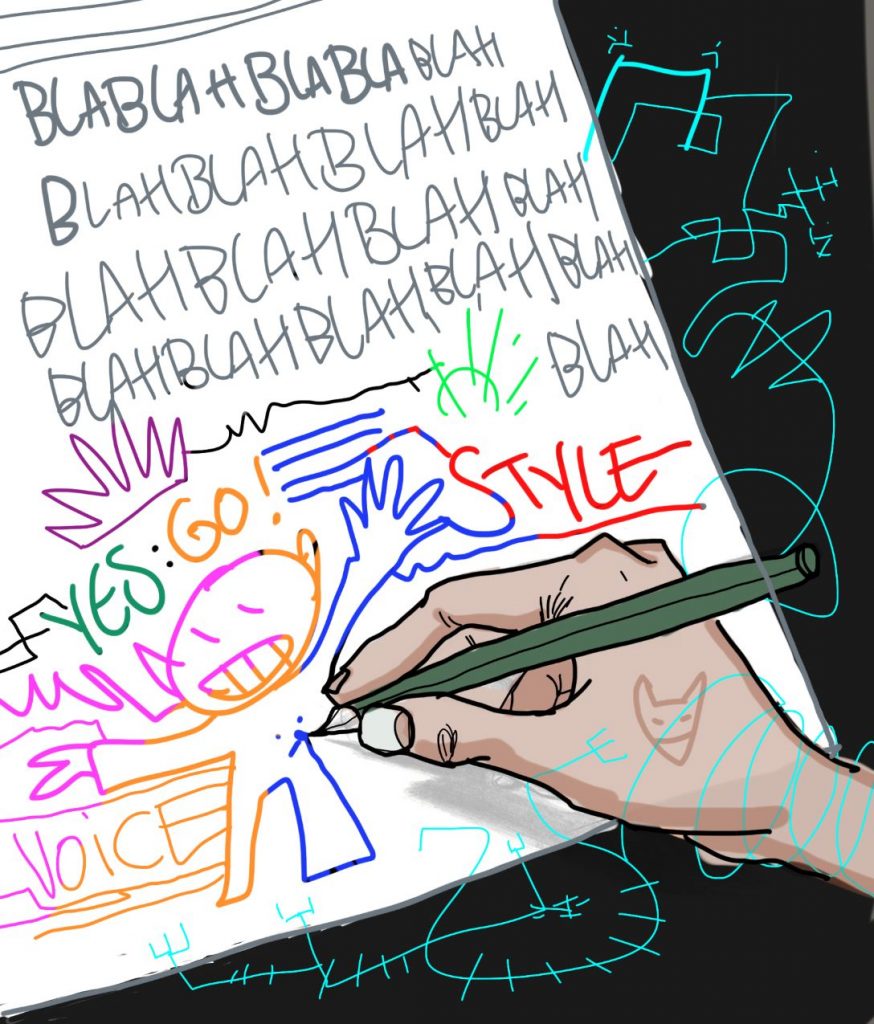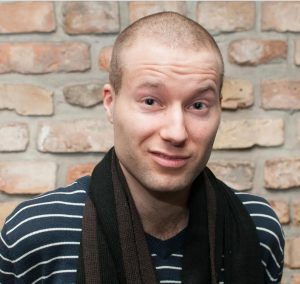
By Mars Dorian, {grow} Contributing Columnist
This year, I created tons of blog posts, launched a couple of books, and created dozens of pieces of artwork for my clients. I was busy like a bee on steroids. I felt good and useful, at least for a while. Then I burned like a candle dipped into diesel, lit on both ends. The aftermath? I stayed in bed into afternoon and whined. For weeks.
To get out of the dark, dark rut, I met with fellow online entrepreneurs and creatives and talked about dealing with the mess. I even booked a trip to Italy, visited Rome and now reside in Tuscany to reboot my working life. During the talks and the downtime, I learned lessons about my burnout and how I’ll treat my creative online ventures from now on.
I want to share the top three lessons from my hiatus with you …
Gary V plowed me under
I’ve been a big fan of Gary Vaynerchuk, the foul-mouthed NYC online-preneur and eternal hustler who wants you to spend every waking minute on your (online) business. I obsessed about his advice of working every waking minute. But after the burnout and the talk with my entrepreneur friends, the view has shifted, and so have my teachings.
My author advice to being a better writer used to be “Write every single day. Hit the keyboard till your fingertips bleed.”
Now I think this Gary-V-approach is ridiculous.
Your writing muscle doesn’t atrophy when you take a one or two day break. In fact, judging from my new experiences, high quality breaks improve my writing. The prose is sharper, the ideas more fresh. When I work my body like a machine, it creates automatic and lifeless work while health takes a deep dive down.
I deliberately plan my recreational time now. Good food with friends. Lots of walking in nature. Visiting new places and trying new things (like learning marble sculpturing). It’s fun. But more importantly, it regenerates my overworked body and reloads the creative battery.
I call those actions high-value distractions, opposed to watching movies and playing video games, which I now consider low-value distractions. They’re fun, but they don’t provide the social counterpart to my lone creation days.
Watching Gary V’s new videos shows he has shifted as well. When asked about his regrets, he says not spending enough time with the family and missing out on a teenager life (dating, going out, having fun with friends, etc.) in the past. He even eats healthy food now and works out with a trainer.
24/7 hustling will help you in the short-term but hurt you long-term. A high-quality distraction involving social pleasure and new experiences does not waste your work, it improves it.
The curse of posting average-good content often
When you’re linked to the web 24/7, the cost of sharing content is zero. You can potentially share a content piece every breath you take and unfortunately, a lot of people do.
The result? Social media channels get flooded with samey samey content you have seen a dozen times before. It’s just adding more ammunition to the content shock, you see it every day:
Average how-to advice articles shared on Twitter. A rambling political post on Facebook. Another inspiring but seen-a-thousand-times quotation from a luminary: “Follow your dreams through hard work!” penned by Mr. Random Famous Person.
It’s not bad, but it’s not providing real value either, considering the tough competition leading to content shock. First, it takes time away from you. Secondly, it ‘spams’ the space with more similarity, preventing your brand from breaking through the clutter.
I used to do the same, but I have changed my approach. I drastically reduce the social media content and replace it with fewer, but higher quality messages. Even when I’m posting known advice, it has to feature a new insight or twist. Something that respects my and my follower’s time.
Which brings us to the last point…
Planning short bursts of intense work
While swinging in my hammock overlooking the Serraveza marble mines where Michelangelo got his material for his legendary sculptures, I checked the amount of content I had produced over the last six months. I pondered my creation approach and cringed at how my productivity scattered over the day. My typical, pre-burnout day looked like this:
Write a paragraph. Check Twitter. Write half a page. Check Amazon sales on the Kindle account. Start client artwork. Check Facebook and email for new updates. Finish sketches for client and check Amazon sales again, followed by Twitter and Facebook messages, not to forget Instagram and now Wattpad. Wince and repeat.
My entire (art)work creation process was interrupted by frequent peeks to my social media and business accounts. It broke my flow. The bane of being online for 1440 minutes a day.
That’s why I have dug up the Pomodoro technique from my early internet days. In short, you plan 25 minutes working periods set by a timer. During that intense working period, you don’t check your messages. Not a single one.
You. Just. Focus. On your work.
Once the 25 min session is over, you take a 5 minute break for checking the social media drug (because you’ll have to), stretching your limbs or visiting the loo. After that, you set another 25 minute session and repeat. At the end of the day, you count all the sessions (I call ‘em POWs–periods of work) and raise the number over the next weeks.
The goal is to deliberately separate productivity time from ‘checking update’ time.
Even if you don’t follow this method, remember to time your working period and postpone your social media check-ups to planned breaks. Never ever mix working time + notification-checking. Treat that combo like nitro and glycerin.
Short and intense bursts of work followed by ample recreational time will get you so much more quality work done.
Conclusion
I believe there’s a dangerous obsession with overwork, especially in the online world where your workplace stalks you all the way to the beach. (I mean you, stealthy Macbook). Choosing high-quality distractions, posting valuable and fewer content posts while working in timed, short productivity sessions has already improved my online life.
Please share this lesson if you find it useful.
 Mars Dorian is an illustrating designer and storyteller. He crafts words and pictures that help clients stand out online and reach their customers. You can find his homebase at http://www.marsdorian.com and connect with him on Twitter @marsdorian
Mars Dorian is an illustrating designer and storyteller. He crafts words and pictures that help clients stand out online and reach their customers. You can find his homebase at http://www.marsdorian.com and connect with him on Twitter @marsdorian

